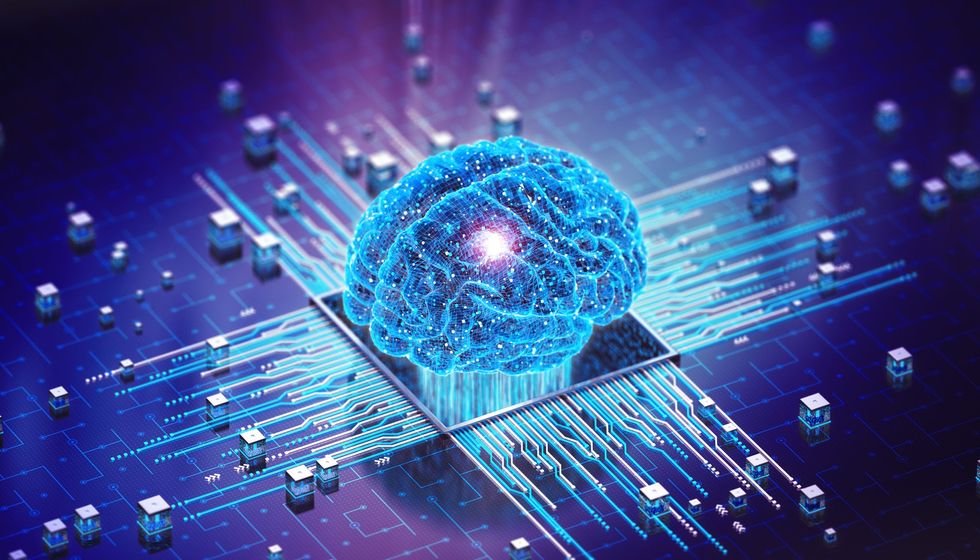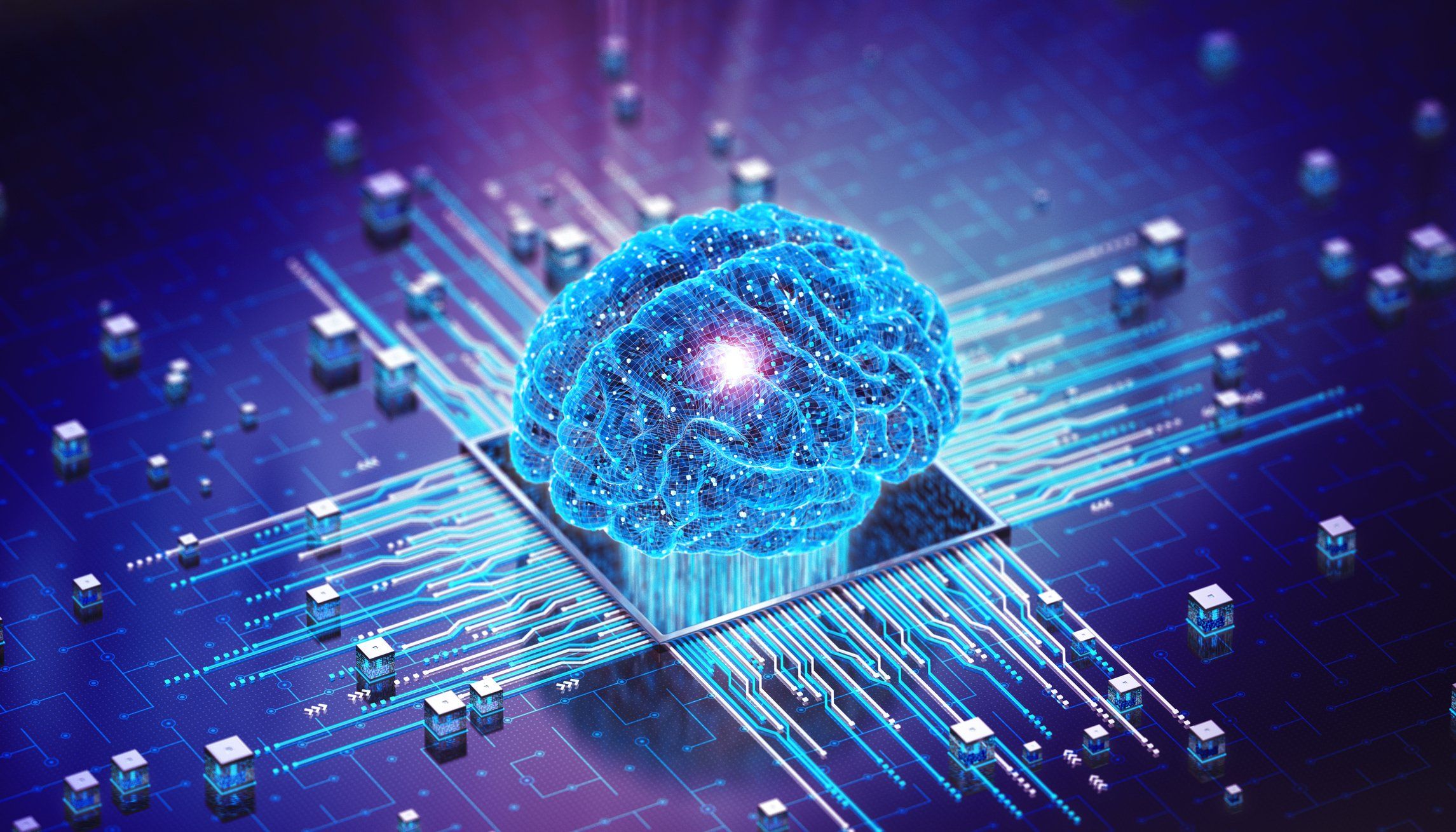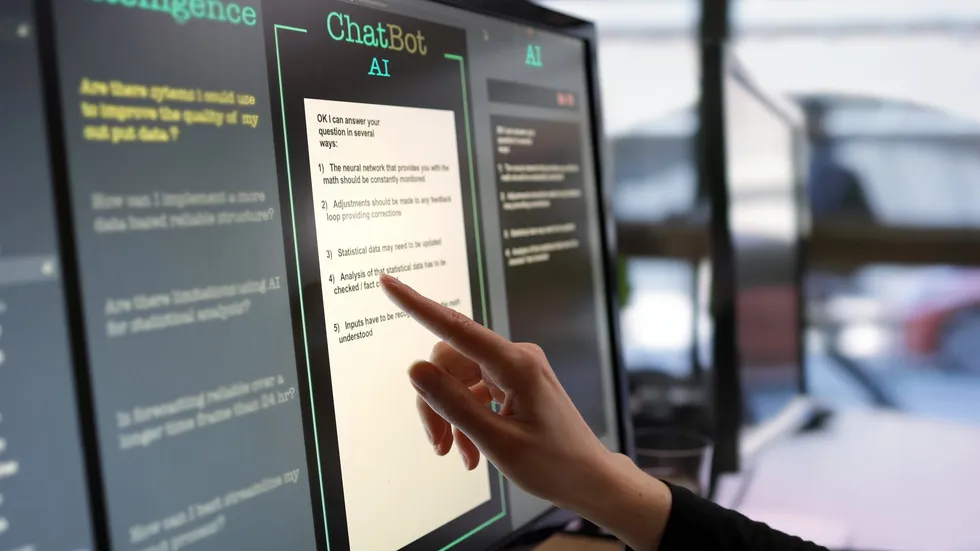The AI takeover isn't coming — it's already here


If you rewatch "The Jetsons," it's clear that robots were initially designed to help humanity.
Live Your Best Retirement
Fun • Funds • Fitness • Freedom
The show features a robot named "Rosie," who serves as the family’s maid, dusting in hard-to-reach places and vacuuming under the rug. For a long time, gadgets like Roombas seemed harmlessly novel, alleviating the burden of small, unwanted jobs. But our relationship with robots as quirky helpers has changed significantly with the proliferation of technology and artificial intelligence.
It's a cheat code for a faster, more efficient life — but a life that is safe, sanitized, and numb.
The rise of AI, for example, has transformed machines from helpers of humanity into its surrogate thinkers.
Educators are sounding the alarm. They claim the widespread availability of AI has severely impacted the education process — and for good reason. Tech companies and academic institutions have argued that AI can allow for "equitable" education that provides immediate, adaptive feedback. It is an expanse of knowledge, distilled into a chatbot or webpage.
But for a technological advancement that sounds so liberating, its implications are actually quite confining.
Classmates to chatbots
In the past, students were encouraged to think critically and to collaborate with their classmates, whether through coloring together in kindergarten or having a lab partner in high school. But now students are bypassing their classmates — and their own cognitive abilities — through AI, using machines to formulate "their" ideas.
One recent study showed that only 16% of students said they preferred to brainstorm ideas without the help of AI programs. Another study found that students preferred to collaborate with AI rather than a human partner because it felt less judgmental.
The data is clear: Students are now learning to self-isolate.
The loneliness economy
This new form of "companionship" extends outside of the classroom.
The COVID-19 pandemic hastened not only a shift from office to remote work but a movement from in-person learning to online schooling. In 2019, approximately 5.7% of Americans worked from home. In 2025, that number has hit nearly 20%, meaning the number has almost quadrupled in less than a decade. This means that people who were previously accustomed to office culture and frequent human interaction have now had many of their personal relationships relegated to Zoom calls and email chains. Couple that with the fact that most Americans consider themselves lonely, and you have the perfect recipe for robotic disaster.
RELATED: If AI isn’t built for freedom, it will be programmed for control
 Laurence Dutton/Getty Images Plus
Laurence Dutton/Getty Images Plus
Recently, fears over people forming close relationships turned from a joke into reality. People who have struggled to find human partners have rejoiced in their ability to use AI to engage in emotional relationships. Some have even begun to consider AI personalities their spouses, using chatbots as substitutes for other people who can be fully customized to their desires.
Empathy, kindness, and something that looks like love can all be generated without any of the work required for interpersonal relationships.
The extremes of AI have launched a thousand think pieces, stirring criticism independent of political affiliations. The technology is most commonly used to solve questions, generate images, or summarize long essays. It makes life a little bit easier because we can spend less time researching, designing, or reading.
But our dependence on AI is growing at an alarming rate. Employees use it to correct the grammar in work emails or comb through valuable data in a white paper. Middle schoolers use it to solve math homework, college kids use it to form a thesis, and your boss uses it to put together an earnings report. It seeps into daily life in innocuous ways, and it slowly — but steadily — becomes normalized.
Cognition crisis
AI is supposed to be a little helper, just like the Jetsons’ "Rosie" robot. But the reality is far more sinister.
New analysis shows that frequent use of chatbots can result in decreasing brain activity and lowered cognitive function. Neurological, linguistic, and behavioral skills are drastically impaired after extensive AI use.
It's becoming clear: AI is eating away at peoples’ brains.
RELATED: Your job, your future, your humanity: AI just crossed the line we can never undo
Schools and companies worldwide have been promoting AI as the new wave in human excellence. They claim AI will make education more accessible and argue that it will fast-track human progress. But it erodes the human experience. Children isolate themselves, adults destroy their relationships, and everyone’s analytical skills deteriorate.
It's a cheat code for a faster, more efficient life — but a life that is safe, sanitized, and numb.
Creation can't be coded
Human creativity is actionable. It builds cathedrals, epic poems, and timeless operas. From ballet to Botticelli, the creative spirit has expressed itself throughout history as a testament to mankind. The result of experience and struggle is beauty. AI removes these things because they aren’t part of a streamlined system. The technology is built to view the pedantic parts of life as barricades to productivity. It's a machine, and humanity will always be just a little bit broken.
In the early 16th century, Michelangelo was commissioned to paint the ceiling of the Sistine Chapel. For four years, he laid on his back, matching colors, mixing paints, and grunting through brutally hot Italian summers. He had to carefully consider each small detail that would represent the awesomeness of God. When he finished, small mistakes were overlooked, and every pain was worthwhile because he had produced something new.
AI can't do this. It can repeat patterns, but it lacks the capacity for the painful lows and rewarding highs of creation. AI generates "new" ideas instantly. It removes the need for individuals to muscle through problems. But it also removes the ability to create anything outside of its preprogrammed database.
AI is trying to kill creativity, and it’s our job to shut off its takeover.
Originally Published at Daily Wire, Daily Signal, or The Blaze
What's Your Reaction?
 Like
0
Like
0
 Dislike
0
Dislike
0
 Love
0
Love
0
 Funny
0
Funny
0
 Angry
0
Angry
0
 Sad
0
Sad
0
 Wow
0
Wow
0










































































